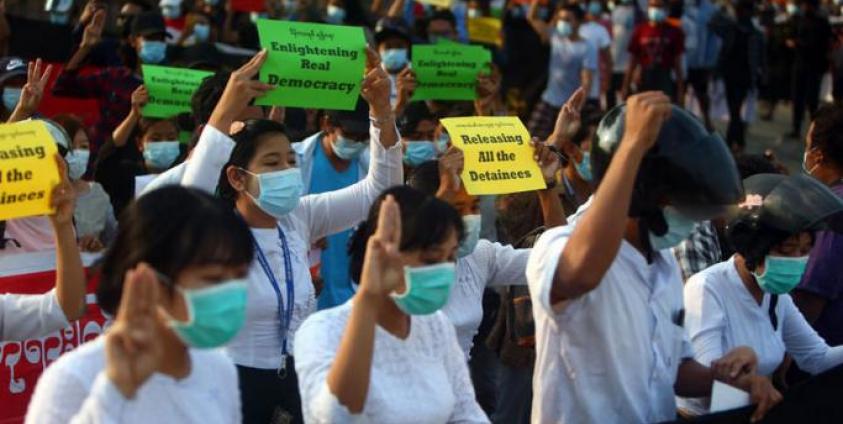Protesters hit the streets across Myanmar on Wednesday to mark the anniversary of 1962 student protests against the country's first junta, vowing defiance against its latest incarnation more than five months after it seized power.
Myanmar has been in turmoil since the generals ousted Aung San Suu Kyi's government in February, with pro-democracy protests met by a brutal military crackdown that has killed more than 880, according to a local monitoring group.
The economy is in freefall with thousands of civil servants and doctors on strike and coronavirus cases in the impoverished country spiking.
Around one hundred protesters moved quickly through the commercial capital Yangon early Wednesday, AFP reporters said, to mark the 1962 Yangon university protests against the first imposition of military rule in Myanmar.
Hundreds were killed by troops and thousands disappeared in a brutal crackdown many see being repeated almost seven decades later.
"Let's root out the fascist army," they chanted, as some let off smoke bombs in orange and blue.
"Keep the spirit of July 7 and fight the military dictatorship."
Two minutes later they had gone -- scattering quickly down side streets or jumping into waiting cars -- informants have tipped off police to previous flashmobs and protesters have been arrested.
Dozens also gathered in the second city of Mandalay holding signs and in the central Sagaing region, protesters burned an army flag, images on local media showed.
Myanmar has been ruled almost continually by the military since 1962, just over a decade since independence from Britain.
It emerged from outright military rule in 2011, enacting economic and political reforms, including multiparty elections.
Suy Kyi's National League for Democracy won a thumping majority in elections in 2015 and again in 2020, relegating the main military-backed party to the opposition.
Protests that drew hundreds of thousands onto the streets in February and March have given way to more nimble rallies in the face of a brutal crackdown that has seen security forces use semi-automatic weapons on protesters.
The junta has justified its power seizure as a means to protect democracy, alleging electoral fraud in November elections which Suu Kyi's party won in a landslide.








